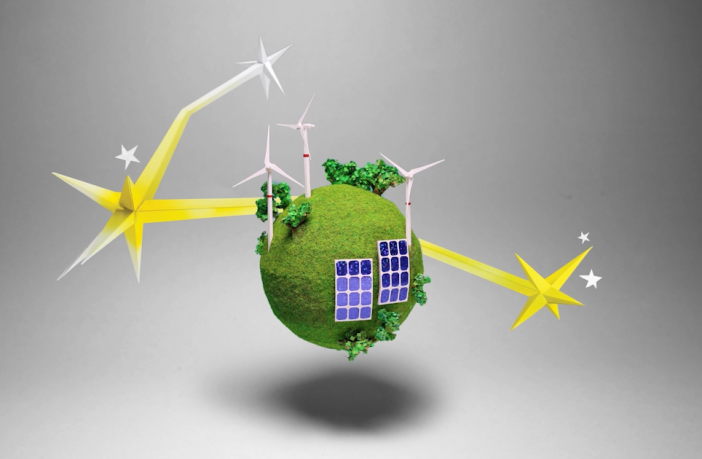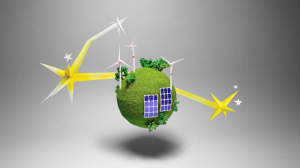Financial Times
Siona Jenkins
Nation’s expertise in local solar and wind technology counts in sub-Saharan market.
Big ambitions: Morocco is home to one of the largest solar power plants © Youssef Boudlal/Reuters.
Karim el-Alami thinks big. Since finishing university two years ago, the young Moroccan engineer and a friend have developed software that uses artificial intelligence to manage renewable energy costs. Their company, Elum Energy, will start deploying the software in telecoms towers around Morocco this summer. They are considering exports and are in talks with operators in a number of countries of sub-Saharan Africa.
“My hope is to deploy our software in every solar storage [unit] that is launched in Africa in the next five years,” says Mr Alami.
He and his business partner, Cyril Colin, are well placed to succeed. They are part of a small band of entrepreneurs that has spotted an opportunity in a new but growing field of energy storage for renewables.
Big Green Bang for renewables
Morocco’s government is keen to support them. The country is fossil-fuel poor and has won attention for its success in developing renewable energy. In 2009, 1.7 per cent of its electricity came from renewable sources. By 2012, this had risen to 32 per cent and is projected to be 42 per cent by 2020 and 52 per cent by 2030. Last year Morocco opened the world’s biggest concentrated solar power plant, Noor 1, and hosted the UN’s COP22 climate change summit.
Mustapha Bakkoury, head of the Moroccan Agency for Solar Energy (Masen), which is responsible for renewables development in the country, told the FT in 2015 that the state was looking to do more than just reduce reliance on fossil fuels and reduce emissions: “We are working to create the conditions for future exports,” he said.
To do this, the Moroccan government is looking south. According to 2014 figures, two-thirds of the population in Sub-Saharan Africa have no access to electricity and some energy experts are hoping that the region could leapfrog traditional electricity generation infrastructure with renewables.
The innovation is in tailoring the product so that it is suited for local needs
Morocco appears well placed to help. It has more than 20 trade agreements with African countries. Casablanca, the country’s commercial capital, is establishing itself as a hub for investment in Africa. Moroccan banks and insurance companies and the national airline, Royal Air Maroc, have a strong presence across the continent. Rabat, the seat of national government, hopes that the nascent renewables sector can build on these ties.
Targeting African markets “makes sense within the Moroccan economy”, says Dana Younger, chief renewable energy specialist at the International Finance Corporation, the private sector lending arm of the World Bank. The Moroccans “have a comparative advantage in terms of sharing expertise and experience with other parts of Africa”, he adds.
A subsidiary of Morocco’s national utility, the Office National de l’Electricité, with funding from IFC, won a concession to bring power to rural Senegal back in 2010.
Moroccan companies have begun to expand south with European partners. French energy giant Engie, which built Morocco’s Tarfaya wind farm — Africa’s largest — with local company Nareva Holding, last year announced a partnership agreement to jointly develop 5GW-6GW of power generation and energy services projects in countries including Ivory Coast, Senegal, Ghana, and Cameroon.
Bruno Bensasson, chief executive of Engie Africa, says that Morocco has “specific strengths” thanks to its strong institutional and diplomatic relations with countries such as Senegal or Ivory Coast. So it made sense, he says, to work with Nareva.
Moroccan experts hope that partnerships with companies like Engie, coupled with a requirement for domestic content in Moroccan energy projects, will help local businesses compete for contracts in the renewables market.
“We have a big chance in Morocco right now,” says Mohamed Bernannou, chief executive of the Moroccan Climate Innovation Centre (MCIC), created in 2014 to develop green technology industry and entrepreneurship. He says conditions in Morocco can replicate those found in many sub-Saharan African countries, giving local companies a competitive edge over those from other parts of the world. “You have extreme heat, you have dust. You are working with a local population that may not be able to look after the maintenance.
“The innovation is not in, for example, a photovoltaic panel,” he adds. “It’s in small technical adaptations that can tailor the product so that it is suited for local needs.”
Mr Alami’s company received MCIC support. In his talks with companies in Nigeria, Ghana and Congo, he has found that Morocco’s experience in building up its own renewables capacity is a big advantage.
“Morocco is not exactly the same as Ivory Coast or Senegal, but its issues are similar. You cannot imagine these problems and issues if you are in Europe or in America.”








